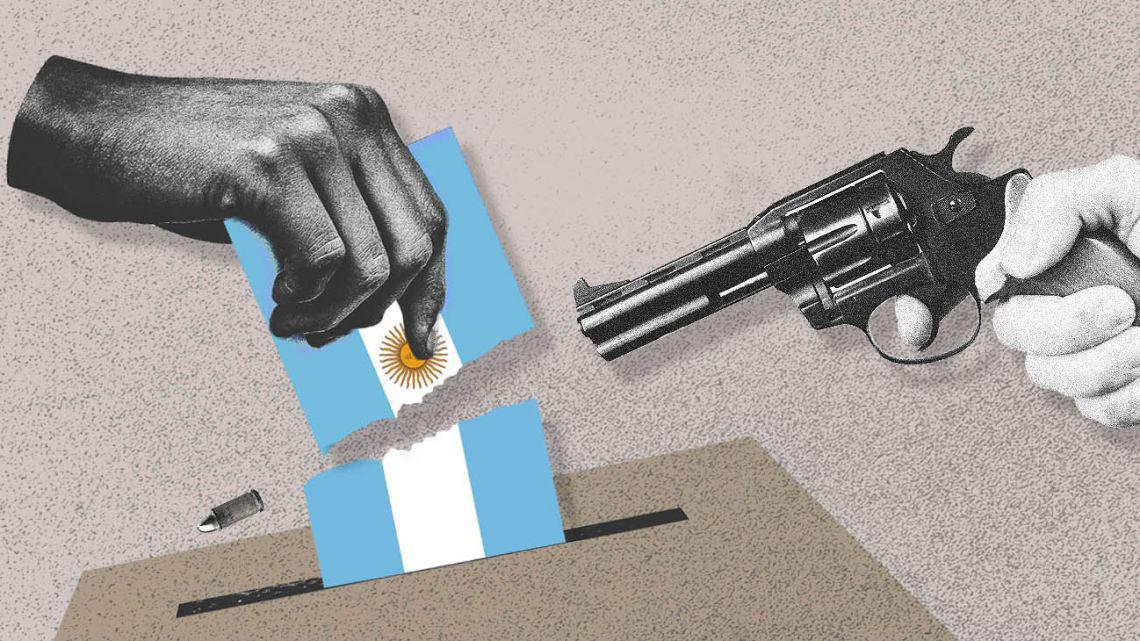RIO DE JANEIRO, BRAZIL – Alberto Fernández’s left-wing government suffered a major defeat on Sunday (12) in the PASO primaries to define the candidates for congress members and senators in Argentina’s legislative elections. In what commentators called a plebiscite about the Argentine president’s administration, the main opposition alliance prevailed in most parts of the country.
With more than 98 percent of the votes counted, former President Mauricio Macri’s ‘Together for Change’ party coalition obtained 41.5 percent of the votes for Congress, against 31.8 percent for the ruling ‘Frente de Todos’ grouping.
Read also: Check out our coverage on Argentina
In the Senate election, which takes place in only a few regions of the country, the difference is even greater: 45.37% for the opposition against 29.01% for the ruling party.
The so-called Open, Simultaneous, and Compulsory Primaries (Paso) define the candidates of the different political forces for the legislative elections on November 14, which will renew half of the Chamber of Deputies seats and one-third of the Senate.
If the results are repeated, there could be a major shift in strength in Congress. The ruling party could lose its majority in the Senate and see the opposition expand its number of seats in the House.
“Due to the process of deterioration of income and, therefore, of the Argentines’ quality of life, inflation is an issue of great concern and explains why people assign responsibility in economic matters to the government and not to the pandemic,” said Lucas Romero, director of Synopsis consulting firm.
The defeat of the Frente de Todos was especially painful in the province of Buenos Aires. In the city of the same name and the country’s capital, ‘Together for Change’ won with a large lead, expected before the election.
The two electoral districts are considered essential in any election in Argentina as they concentrate just over 40% of the population.
The opposition also won in other heavily populated regions such as Cordoba and Santa Fe and even in Santa Cruz, long a stronghold of the country’s vice-president Cristina Kirchner.
After the announcement of the partial results yesterday, Fernández participated in an event with the main leaders of his party and acknowledged that the government made mistakes that will need to be reversed to avoid a major defeat in the legislative elections.
“We all listened to the verdict of the people with respect and a lot of attention,” he said. “The campaign has just begun, and in November, we have to win it because we commit to Argentina. We will listen, we will correct what has been done wrong, and we will do what has not been done.”
COUNTRY IS DOWN
The elections were marked by the Argentines’ apathy with politics and long lines because of protocols to prevent the spread of Covid-19. The turnout rate was about 67%, almost ten percentage points less than in 2017.
Critics claim that Argentines have every reason to turn their backs on Alberto Fernández and his leftist government.
The country is experiencing a mass exodus of capital coupled with an unprecedented brain drain. Argentines with money are fleeing the country in panic, inflation is rampant, the tax burden is rising, and the country is stumbling from one Covid lockdown to another, all but destroying the country’s middle class.
These long quarantines implemented by the Fernández administration led to an economic slump of 9.9% in 2020, while the 8% recovery expected by the government this year has not changed the uncertainty.
In addition, Argentina has suffered more than 113,00 deaths from Covid-19 since the pandemic began, far worse, as a percentage of the population, than the world’s former whipping boy Brazil.
To top it off, the government is scheming to introduce mandatory Covid vaccinations.
The Draft law provides for fines, forced shots, blacklisting, and other restrictions.
If accepted, authorities can – for every citizen who does not want to be vaccinated against Covid – jeopardize the implementation of basic procedures such as the renewal of identity cards, passports, or driver’s licenses, to which every citizen and resident is entitled. Many in Argentina call this blackmail.
The population has not been consulted in any way over this question.
PRIVILEGES OF THE RULING CLASS
In this context, the recent release of pictures of Fernández at the first lady’s birthday party at the presidential residence in July 2020, during the harshest restrictions imposed by the pandemic, had a great political impact.
This scandal joined the VIP Vaccination scandal, due to the disclosure last February of people who were vaccinated under privileged conditions, thus prompting a change of Health Minister.
These two events showing “politicians abusing their power and exercising privileges,” prevent “the government from using the pandemic as an excuse for not complying with its economic mandate,” according to the opposition.


